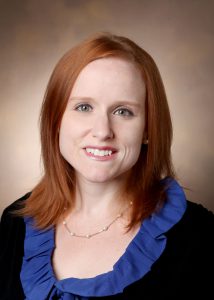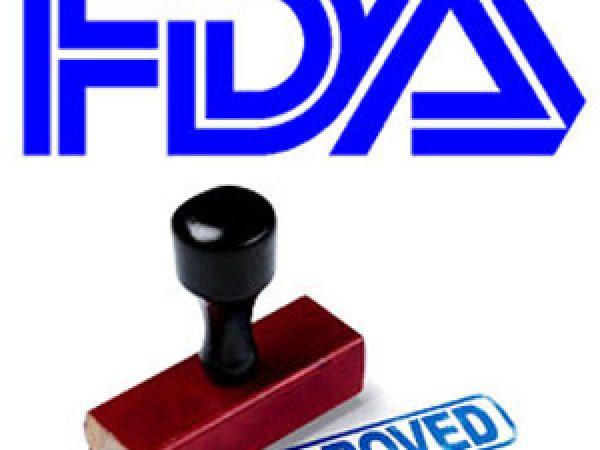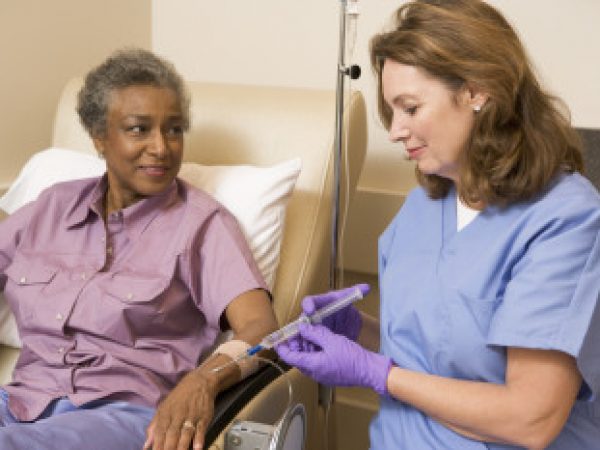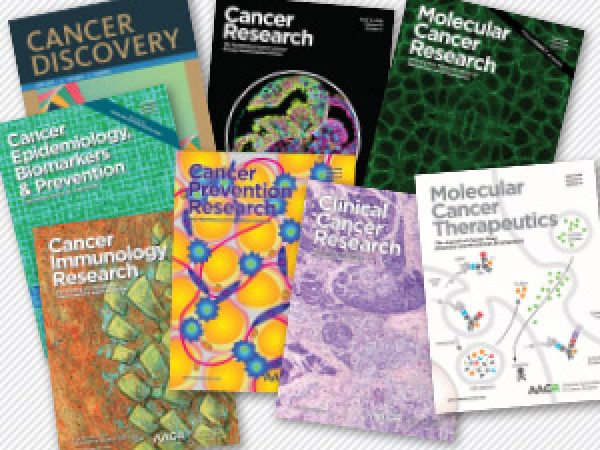Young Investigator Visits Congress to Advocate for Cancer Research Funding
Guest post by Christine Lovly, MD, PhD
We all remember our “firsts” – first pet, first car, first job, first kiss. The “firsts” are game changers – events in our lives which make a lasting impact. My first trip to Capitol Hill was no different.
To be honest, I did not fully understand at first what was meant by a “congressional briefing.” However, when the American Association for Cancer Research (AACR) invited me and several other early-career cancer researchers to participate in a briefing titled “Seizing Today’s Opportunities to Accelerate Cancer Research,” I jumped at the opportunity. I was humbled by the invitation and wanted to help in any way I could.
The goal of the briefing, I learned, was to educate policymakers and generate excitement for Vice President Biden’s National Cancer Moonshot Initiative. To do so, the AACR gathered an esteemed panel of cancer experts, including National Cancer Institute (NCI) Acting Director Douglas Lowy, MD; Margaret Foti, PhD, MD (hc), the chief executive officer of the AACR; and Nancy Davidson, MD, President of the AACR. Along with these “giants” in the field of cancer research were five “young investigators,” including me, who were there to convey the need to accelerate cancer research and explain how funding affects research opportunities.
The briefing took place on June 28, the day before Vice President Biden held a moonshot summit at Howard University in Washington, D.C. The briefing drew a standing-room-only crowd of congressional representatives and their staffers. Another 1,400 people watched the briefing via Facebook live streaming.
The messages conveyed during the briefing were clear and consistent and paralleled those set forth by the NCI’s Blue Ribbon Panel, a group that is advising Biden’s initiative:
- Policymakers must provide robust, sustained, and predictable annual federal funding increases to the NIH and NCI. Implicit in this goal is the need to fund “basic science” research, which provides the foundation upon which novel cancer therapies are developed, providing a pipeline for bench-to-bedside translational studies.
- The cancer community must focus on the goals of precision cancer medicine—to bring the right drug to the right patient at the right time in the disease course. Fundamental to achieving these goals is the need to study all cancer patients, regardless of age, gender, or race/ethnicity, and to reduce cancer health care disparities.
- More patients need access to and enrollment in clinical trials, which bring the most cutting-edge therapies to patients. Essential to achieving this goal is the critical need to identify barriers to enrollment for health care providers, patients, and caregivers. On the research side, the panel discussed the need for biomarker-driven clinical trials with robust correlative studies.
- The next generation of cancer researchers must be fostered and encouraged. Particularly during difficult federal funding periods, many young investigators are opting for alternative career paths, thereby putting future generations of innovative research in jeopardy.
The importance of cultivating early-career investigators is especially personal for me. During my time in Washington, I shared the story of my participation in a National Science Foundation (NSF)-sponsored research program for high school students hosted by Roswell Park Cancer Center in Buffalo, New York. I was only 16 at the time, but this experience was truly a life-changer for me! This experience first introduced me to the concepts of cell growth and proliferation and how these processes can go awry in cancer.
The NSF program brought me into direct contact with the cancer research community. I was moved by their collective dedication and enthusiasm for their work, and set an unwavering goal to pursue a career as a medical oncologist and translational researcher. I am certain that I am not the only one who has benefited from such early exposure, and I hope that generations of young physicians and scientists to come also have such meaningful opportunities.
The “cancer community” is not just current patients, caregivers, and health care providers. It is all of us. Cancer is a unifier, something that touches each of us. I believe that’s why so many busy congressional staffers attended the briefing.
The NCI Moonshot Initiative has galvanized our “cancer community” and has encouraged us to use our collective powers, knowledge, and passion to combat cancer at this critical time of extraordinary and unprecedented scientific advancements. I was thrilled to share my enthusiasm and experience with members of Congress, and in turn, I am so grateful for their willingness to listen and engage in our discussion.
All in all, the AACR congressional briefing was a “first” that exceeded all expectations and left me with the feeling that we, collectively, are in a transformative era of cancer research that is recognized by physicians, scientists, patients, advocates, and policymakers throughout the country.
Cancer itself involves some “firsts” we would all be happy to live without – the first day we found out that a loved one was diagnosed with cancer, the first time we watched him or her struggle from the symptoms of the cancer, the first time we suffered the loss of our loved one to this dreadful disease. I left Capitol Hill with the sense that with continued momentum, the end of these “firsts” is in sight for us all.
Dr. Lovly is an assistant professor of medicine and cancer biology at Vanderbilt-Ingram Cancer Center in Nashville, Tennessee. She is trained as a medical oncologist and research scientist. She has received career development awards from several prestigious cancer research foundations including the AACR, the Damon Runyon Foundation, LUNGevity, and the V Foundation.




